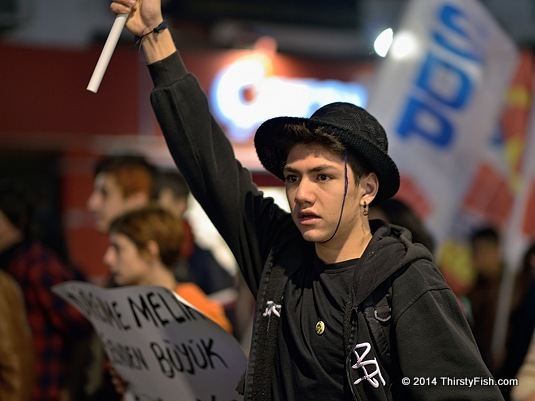Occupy Turkey: Young Anarchist / Anarchism and Religion

Most people do not understand what Anarchism stands for. Many anarchists among themselves can not seem to agree on what Anarchism is. One does not have to identify as an anarchist to be one, or, not everyone who identifies as an anarchist is one. Ultimately, anarchism is just a word.
An earlier post noted anarchist understanding in Native American cultures. Although anarchism is defined as a political philosophy, anarchism can take individualist or even religious forms. For example, Leo Tolstoy was a Christian anarchist. But conceivably, most religious anarchists come out of various mystical traditions of their respected religions.
In both the individualist and religious sense, anarchism is prohibitive or highly critical of the role of "human authority". Groupthink stands in direct contrast to anarchism. The concepts of free will, critical evaluation, independent thinking, individual creativity and personal responsibility are all fundamental to anarchist thought. In religious anarchism, one answers not to "human authority" but to God, and only God, and in a broader understanding, one answers to truth. Finally, contrary to popular perception most anarchists are opposed to aggression and do not adhere to hedonism.
Although there is little on the subject, a new type of "Spiritual Anarchism" is emerging amongst a number of anarchists I have spoken to. I can best describe it as the Anarchist Readings of Spinoza merged with a form of Spinozoan Spirituality. Baruch Spinoza is a must read period; Especially for those interested in crossing spirituality, monism, and anarchy.
Posted
- Sat 2014-03-08
Captured
- 2013-10-22
- Izmir, Turkey


